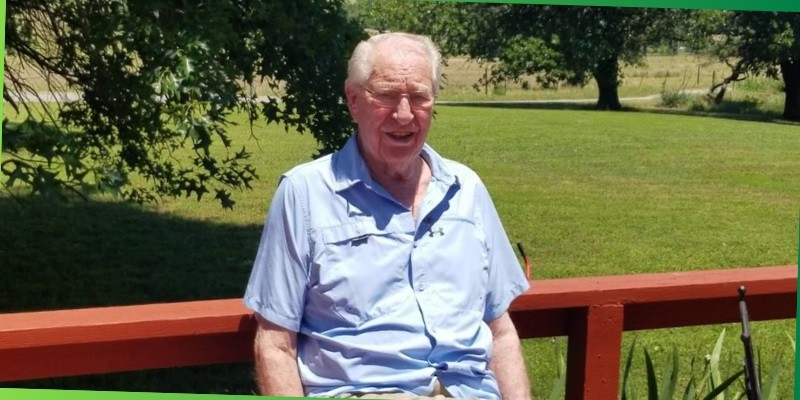Last Updated on January 15, 2025
Yes, a felon can adopt a child in the USA. While a felony conviction does not automatically disqualify someone from adopting, the social worker conducting the home study will carefully evaluate the circumstances surrounding the felony, including when and why it occurred, what was learned from the event, and steps taken to rectify past mistakes.
The criminal history of the potential adoptive parent will be scrutinized during the background check, and disqualifying factors such as violence against children or domestic violence can prevent adoption. Each state may have different requirements, so it is important for felons considering adoption to research the specific regulations in their state.
Adoption Laws And Felony Convictions
Felony convictions do not automatically disqualify individuals from adopting a child in the United States. The decision depends on factors such as the nature of the felony, when it occurred, the lessons learned, and steps taken to correct past mistakes.
Background checks are conducted, but having a criminal record does not necessarily prevent adoption.
Overview Of Adoption Laws In Relation To Felony Convictions
When it comes to adoption, the presence of a felony conviction can complicate the process. However, it doesn’t automatically disqualify someone from becoming an adoptive parent. Adoption laws regarding felons vary from state to state in the US, and it’s crucial to understand the specific regulations in your jurisdiction. It’s essential to have a clear understanding of adoption laws and how they pertain to felony convictions before proceeding with an adoption process.
How A Felony Conviction Can Affect The Adoption Process
A felony conviction can influence the adoption process in several ways. It may be seen as a red flag by adoption agencies, social workers, and other professionals involved in evaluating prospective adoptive parents. The severity and nature of the felony, as well as the amount of time that has passed since the conviction, can significantly impact the outcome. It’s vital for individuals with felony convictions to be prepared to address their past mistakes, demonstrate personal growth, and explain how they have taken steps to ensure a stable and safe environment for the adopted child.
The Role Of Home Study Social Workers In Evaluating Felons As Potential Adoptive Parents
Home study social workers play a crucial role in evaluating felons as potential adoptive parents. The home study is a comprehensive assessment that examines various aspects of the adoptive parents’ lives, including their criminal history. Social workers aim to ensure the safety and well-being of the child being placed for adoption, so they carefully assess the felon’s ability to provide a secure and nurturing environment. During the home study process, the social worker will likely delve into details about the felony conviction, including when it occurred, why it happened, what the individual has learned from the experience, and how they have worked towards personal growth and rehabilitation.
To fulfill their duty of evaluating the suitability of felons as adoptive parents, home study social workers consider factors such as the type of felony, the individual’s criminal record beyond the specific conviction, any history of violence, and the individual’s ability to provide a loving and stable environment for the child. While a felony conviction can complicate the adoption process, demonstrating genuine remorse and personal growth can potentially mitigate the impact of the conviction on the evaluation process.
Adoption laws and how they relate to felony convictions is crucial for individuals exploring adoption as a felon. While it may present challenges, it’s not an automatic disqualification. By being informed about the relevant regulations and demonstrating personal growth and a commitment to providing a safe environment for the child, felons can potentially navigate the adoption process successfully.

Credit: consideringadoption.com
State-specific Adoption Requirements For Felons
A felony conviction doesn’t automatically disqualify someone from adopting a child in the United States. Each state has its own specific adoption requirements for felons, which includes a thorough assessment of the individual’s criminal history, rehabilitation efforts, and overall suitability as a parent.
Adoption Requirements For Felons In Texas
When it comes to adopting a child in Texas, having a criminal record can make the process more challenging. Your criminal history, including any arrests, charges, and convictions, will be thoroughly examined during the background check. Unless you have expunged your record, these details will show up and potentially disqualify you from adoption.
To adopt a child in Texas, you must meet certain requirements:
- Be financially stable
- Be responsible and mature
- Complete an application to adopt
- Share background and lifestyle information
- Provide references
- Provide proof of marriage and/or divorce (if applicable)
- Have a completed home study
Keep in mind that certain disqualifying factors can make your adoption application ineligible. If your criminal history includes violence against children or domestic violence, it will almost certainly lead to disqualification.
Adoption Requirements For Felons In New Jersey
In New Jersey, the standards for adoption are quite strict. Typically, a potential adoptive parent with a criminal record, a history of abuse or violence, or financial instability will not be eligible to adopt.
If you have a felony conviction, it may raise concerns during the adoption process. The court will assess the nature of the felony, when it occurred, what you have learned from the experience, and the steps you have taken to rectify any wrongdoings. Each case will be evaluated on an individual basis, taking into account your rehabilitation efforts.
It’s important to note that every state has its own specific adoption requirements and disqualifying factors. It’s crucial to understand the regulations of the state in which you plan to adopt.
For more information on adoption requirements in Texas, visit this link. To learn more about adoption requirements in New Jersey, check out this resource.
Steps To Correct Past Mistakes And Increase Adoption Chances
While being a felon may not automatically disqualify you from adopting a child in the USA, it is important to take steps to correct past mistakes. During the adoption process, your home study social worker will discuss your felony, when it occurred, what you have learned from it, and how you have worked towards correcting any past errors.
Ultimately, the final decision will depend on various factors and the specific state’s adoption requirements.
Rehabilitation Programs And Their Impact On Adoption Eligibility
Rehabilitation programs can play a significant role in determining a felon’s eligibility to adopt a child. These programs focus on helping individuals overcome their past mistakes, regain their independence, and reintegrate into society as productive citizens. Participating in rehabilitation programs demonstrates a sincere commitment to personal growth and transformation. This dedication to rehabilitation can have a positive impact on the adoption process. It shows potential adoptive parents taking active steps to correct their past mistakes and create a stable and nurturing environment for a child.
How Felons Can Demonstrate Their Commitment To Change And Rehabilitation
Felons looking to adopt a child can demonstrate their commitment to change and rehabilitation in various ways. Here are some recommended steps:
- Complete court-ordered obligations: Fulfilling all court-ordered obligations, such as probation or community service, showcases a sense of responsibility and accountability.
- Participate in therapy or counseling: Engaging in therapy or counseling sessions can demonstrate a genuine desire to address underlying issues and develop healthier coping mechanisms.
- Attend support groups or self-help programs: Active participation in support groups or self-help programs showcases a willingness to seek support, learn from others, and maintain a support system.
- Obtain relevant certifications or education: Pursuing certifications or educational programs related to child development, parenting skills, or other relevant areas can highlight a commitment to learning and growth.
- Showcase stable employment and financial responsibility: Providing evidence of stable employment and demonstrating financial responsibility can help establish a secure environment for the child.
Recommended Steps For Felons To Improve Their Chances Of Adopting A Child
To enhance their chances of adopting a child, felons should consider taking the following steps:
- Research adoption laws and requirements: Understanding the specific adoption laws and requirements in their state is crucial for preparing a strong adoption case.
- Consult with adoption professionals: Seeking guidance and support from adoption agencies, social workers, or attorneys experienced in the adoption process can provide valuable insights and assistance.
- Be transparent and honest during the home study process: The home study is a critical component of the adoption process. Being transparent and honest about past mistakes, the steps taken towards rehabilitation, and the changes made since then is essential.
- Build a strong support system: Creating a strong support system of family, friends, or mentors who can attest to their growth, commitment to change, and suitability as adoptive parents can boost their chances.
- Consider open adoption: Open adoption, where the birth parents and adoptive parents maintain some level of contact, allows for additional opportunities to demonstrate commitment, growth, and a healthy environment for the child.
Taking these steps can help felons interested in adoption correct their past mistakes, demonstrate their commitment to change and rehabilitation, and increase their chances of providing a loving and stable home for a child in need.
Frequently Asked Questions For Can A Felon Adopt A Child?
Can A Felon Adopt A Child In Usa?
Yes, a felon can adopt a child in the USA. The home study social worker will discuss the felony, its circumstances, what the individual has learned from the event, and steps taken to address past mistakes. Adoption requirements vary by state.
Can You Adopt In Texas With A Criminal Record?
In Texas, having a criminal record may disqualify you from adopting a child. Your criminal history, including arrests, charges, and convictions, will show up on your background check. However, if you have expunged your criminal record, you may still be eligible to adopt.
It’s important to discuss your felony with the home study social worker, who will consider the circumstances, what you have learned from the experience, and any steps you have taken to correct past mistakes.
What Are The Requirements To Adopt A Child In Texas?
To adopt a child in Texas, you must be financially stable, responsible and mature. You need to complete an adoption application and share background information. References and proof of marriage or divorce may be required. A completed home study is also necessary.
However, criminal history, including arrests, charges, and convictions, may disqualify you from adoption unless the record has been expunged.
Can A Felon Adopt A Child In New Jersey?
In New Jersey, a potential parent with a criminal record may face difficulties in adopting a child. The state’s adoption standards generally do not allow adoption if the individual has a history of abuse or violence, struggles with financial instability, or has a criminal record.
Can A Felon Adopt A Child In The Usa?
If you were convicted of a felony, it doesn’t necessarily mean you cannot adopt. Your home study social worker will assess your situation and how you’ve taken steps to correct any past mistakes.
Can You Adopt In Texas With A Criminal Record?
Unless you’ve expunged your criminal record, your past arrests, charges, and convictions will show up on your background check and may disqualify you from adopting in Texas.
Conclusion
In the United States, being convicted of a felony does not automatically disqualify someone from adopting a child. During the home study process, the prospective adoptive parent will have the opportunity to discuss their felony, the circumstances surrounding it, any lessons learned, and steps taken to rectify past mistakes.
In Texas, for example, while a criminal history will be considered, it does not automatically disqualify an individual from adoption. Each case is evaluated individually, taking into account factors such as stability, responsibility, and references. Therefore, it is possible for a felon to adopt a child, but it ultimately depends on various factors and the discretion of adoption agencies or courts.







